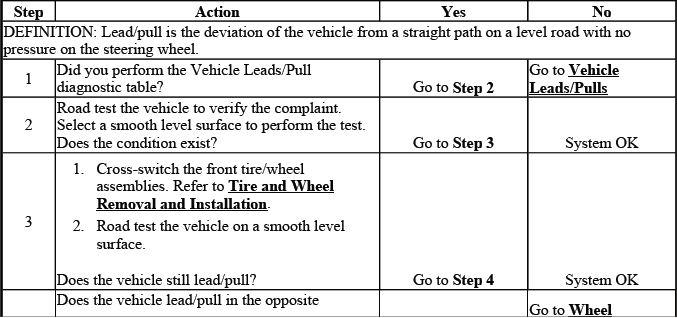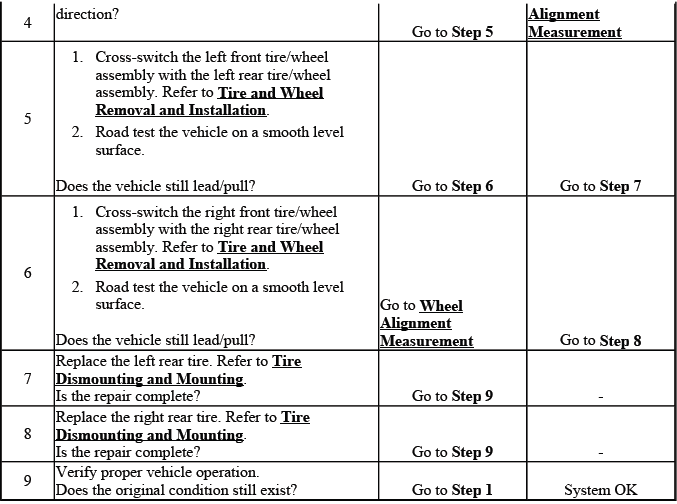Buick Enclave: Specifications, Diagnostic Information and Procedures
SPECIFICATIONS
FASTENER TIGHTENING SPECIFICATIONS
Fastener Tightening Specifications

ADHESIVES, FLUIDS, LUBRICANTS AND SEALERS
Adhesives, Fluids, Lubricants and Sealers

DIAGNOSTIC INFORMATION AND PROCEDURES
TIRE DIAGNOSIS - IRREGULAR OR PREMATURE WEAR
Tire Wear
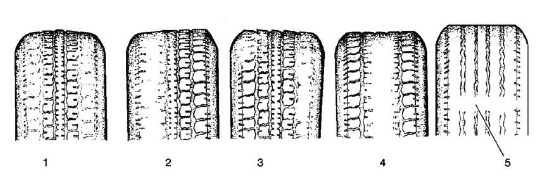
Fig. 1: Identifying Types Of Tire Wear

Inspection Procedure
1. Inspect the front tire wear.
2. Inspect the rear tire wear.
3. Rotate the tires if any of the following conditions exist:
- The amount of time or mileage since the last tire rotation matches the maintenance schedule.
- The outer tread blocks are worn more than the middle tread blocks (1).
- The outer tread blocks are worn more than the inner tread blocks (2).
- The middle tread blocks are worn more than the outer tread blocks (4).
4. Measure the wheel alignment if any of the following conditions exist:
- The tread blocks have feathered edges (3).
- The outer tread blocks are worn more than the inner tread blocks (2).
- The inner tread blocks are worn more than the outer tread blocks (2).
5. Inspect the struts or the shock absorbers if the tire tread exhibits a cupped appearance (3).
TIRE DIAGNOSIS - WADDLE COMPLAINT
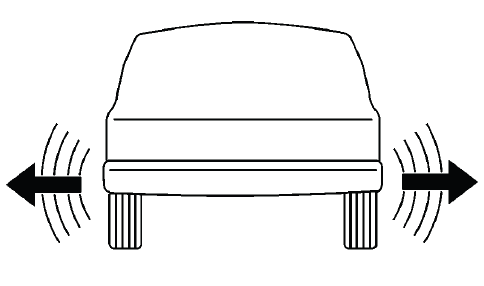
Fig. 2: Identifying Tire Wobble/Waddle
Tire waddle is a side to side movement at the front of the vehicle and/or the rear of the vehicle. Tire waddle can be caused by the following conditions:
- A steel belt not being straight within the tire
- Excessive lateral runout of the tire
- Excessive lateral runout of the wheel
The tire waddle is most noticeable at a low speed of about 8-48 km/h (5-30 mph). Tire waddle may appear as ride roughness at 80-113 km/h (50-70 mph). Tire waddle may appear as a vibration at 80-113 km/h (50-70 mph).
Inspection Procedure
1. Raise and support the vehicle with safety stands. Refer to Lifting and Jacking the Vehicle.
2. Perform the following preliminary inspection:
WARNING: Wear gloves when inspecting the tires in order to prevent personal injury from steel belts sticking through the tire.
- Mark the tire with a crayon in order to note the start and the stop position.
- Rotate each tire and wheel by hand.
- Inspect the tire for bulges or bent wheels. Replace as necessary.
3. Use tire substitution in order to identify the faulty tire. Perform the following steps for a tire substitution check:
- Use a comparable tire in order to replace each tire, one at a time.
- Test drive the vehicle.
- If the problem is tire or wheel related, you will eliminate the problem when you remove the faulty tire from the vehicle.
WHEEL MOUNTING SURFACE CHECK
Replace any wheels that are bent or dented or have excessive lateral or radial runout. Wheels with runout greater than specified may cause objectionable vibrations.
1. Thoroughly clean the wheel mounting surface with a clean shop towel and denatured alcohol or equivalent.
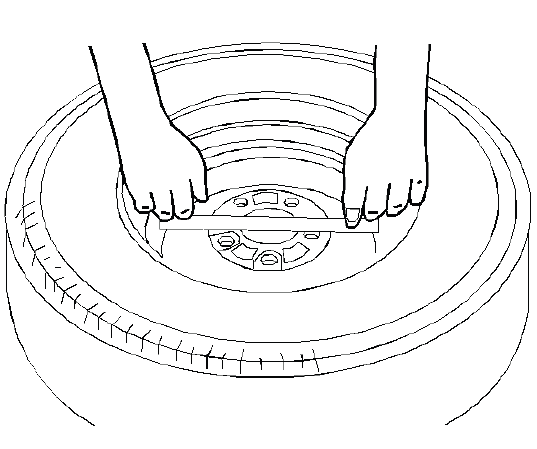
Fig. 3: Checking Wheel Mounting Surface
2. Use a straight edge 203-229 mm (8-9 in) long. Place the straight edge on the wheel inboard mounting surface. Try to rock the straight edge up and down within the mounting surface.
3. For aluminum flat-mount wheels, repeat the procedure in step 2 on at least 3-4 different positions on the inboard mounting surface.
If you can rock the straight edge, the mounting surface is bent and you must replace the wheel.
4. Inspect the mounting wheel/nut holes for damage caused from over-torquing the wheel/nuts. Inspect for collapsed wheel/nut bosses. Inspect for cracked wheel bosses.
5. For steel wheels, repeat the procedure in step 2 on at least 3-4 different positions on the inboard mounting surface.
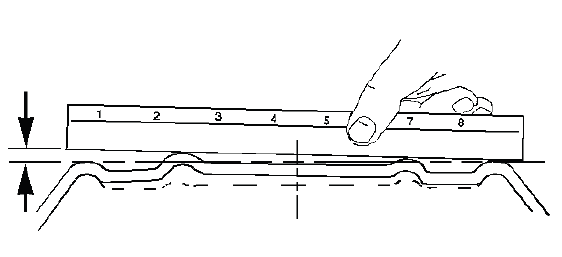
Fig. 4: Inspecting Wheel Inboard Mounting Surface
- The outer mounting ring is designed to be raised slightly above the inner mounting ring.
- If you can rock the straight edge, the mounting surface is bent and you must replace the wheel.
6. Inspect the mounting wheel/nut holes for damage caused from over-torquing the wheel/nuts. Inspect for collapsed wheel/nut bosses. Inspect for cracked wheel bosses.
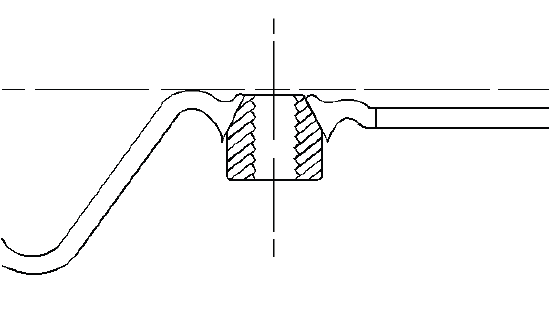
Fig. 5: Inspecting Mounting Wheel/Nut Holes For Damage Caused From Over-Torquing
The
Wheel/Nuts
7. Replace the wheel if the wheel is bent.
CAUTION: The use of non-GM original equipment wheels may cause:
- Damage to the wheel bearing, the wheel fasteners and the wheel
- Tire damage caused by the modified clearance to the adjacent vehicle components
- Adverse vehicle steering stability caused by the modified scrub radius
- Damage to the vehicle caused by the modified ground clearance
- Speedometer and odometer inaccuracy
NOTE:
- Replacement wheels must be equivalent to the original equipment
wheels in the following ways:
- The load capacity
- The wheel diameter
- The rim width
- The wheel offset
- The mounting configuration
- A wheel of the incorrect size or type may affect the following
conditions:
- Wheel and hub-bearing life
- Brake cooling
- Speedometer/odometer calibration
- Vehicle ground clearance
- Tire clearance to the body and the chassis
8. Replace the wheel if the wheel/nut boss area is cracked.
Identify steel wheels with a 2 or 3-letter code stamped into the rim near the valve stem. Aluminum wheels have the code, the part number and the manufacturer identification cast into the back side of the wheel.
RADIAL TIRE LEAD/PULL CORRECTION
Radial Tire Lead/Pull Correction
